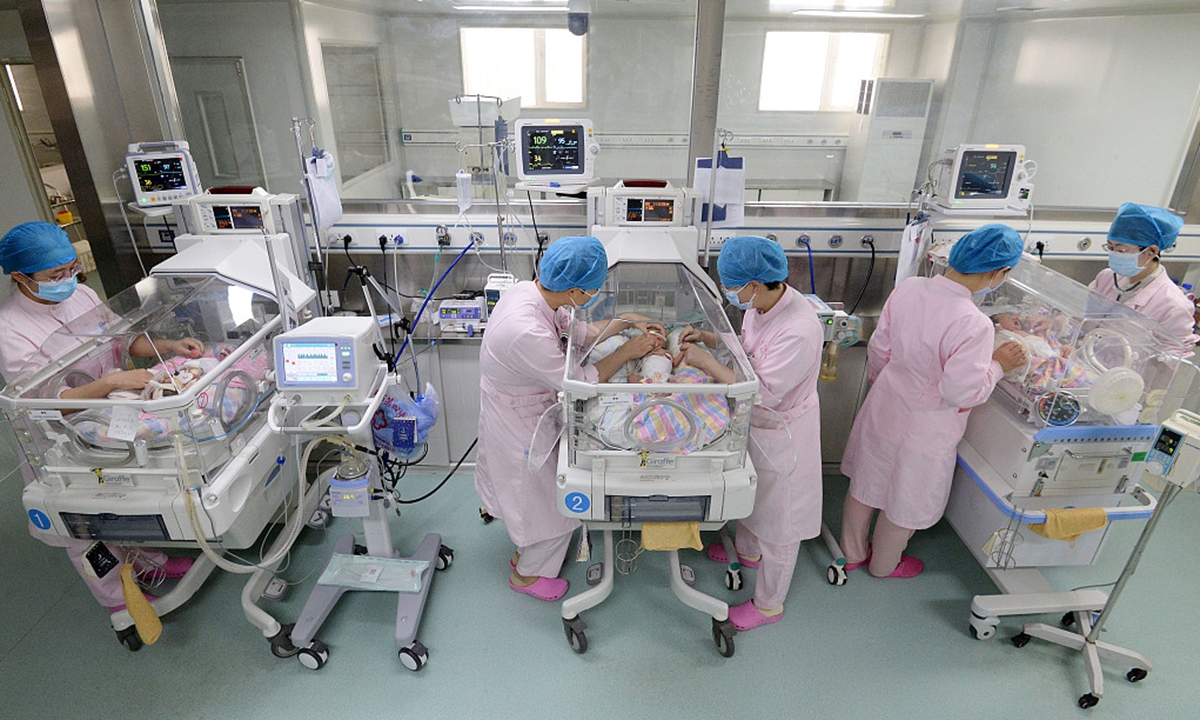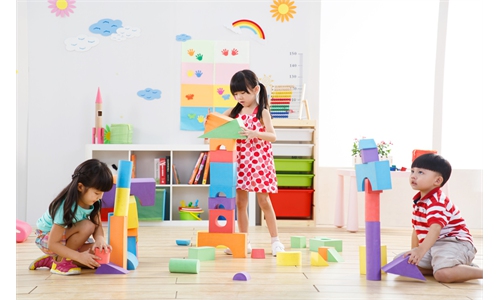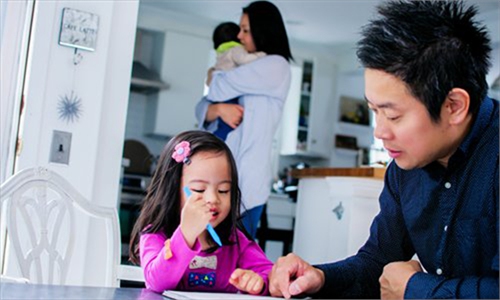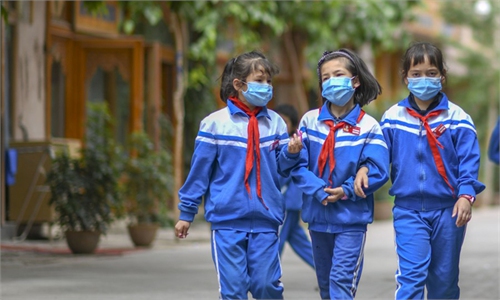C.China’s Henan Province to offer parental leave up to 10 days annually to encourage childbirth

Third-child policy Photo:VCG
Central China's Henan Province plans to revise its regulations on population to legitimize the third-child policy and roll out a slew of support measures ranging from more parental leave to offering jobs for women in need, according to a draft decision proposed by local authorities on Tuesday. The move comes amid China's efforts to encourage families to have more children.
The draft decision mainly focuses on optimizing the population structure, promoting the population's balanced development for the long term, advocating for marriage and childbirth at the appropriate age, according to the local authorities. It also plans to allow couples to have three children, and social maintenance fees and related punishment regulations will be removed.
Couples in the province who have children aged below 3 years old are expected to be entitled to parental leave for up to 10 days annually, according to the draft decision.
During pregnancy, childbirth and breast-feeding, women can obtain assistance and compensation in accordance with the relevant regulations, the draft decision said. The legitimate rights of career women shall be protected, and those whose employment has been affected by childbirth shall be offered job services.
Henan's population growth rate has decreased significantly from 2016 to 2020. The growth in population decreased from 660,000 in 2016 to 230,000 in 2020, with the growth rate reduced from 0.615 percent in 2016 to 0.21 percent in 2020, according to the local authorities.
Henan is among the provinces which have implemented supportive measures to encourage childbirth. Along with the parental leave and nursing leave, many cities across the country also launched various subsidy policies.
Linze county in Northwest China's Gansu Province said in September it would provide subsidies of up to 40,000 yuan ($6,265) for couples who give birth to two or three children, when they purchase commercial houses, according to media reports.
China has been adjusting its one-child family planning policy in recent years. It partially implemented the two-child policy in 2013 and fully promoted it in 2015.
China in July this year unveiled details of the third-child policy and supportive measures including more nurseries and flexible work leaves.



